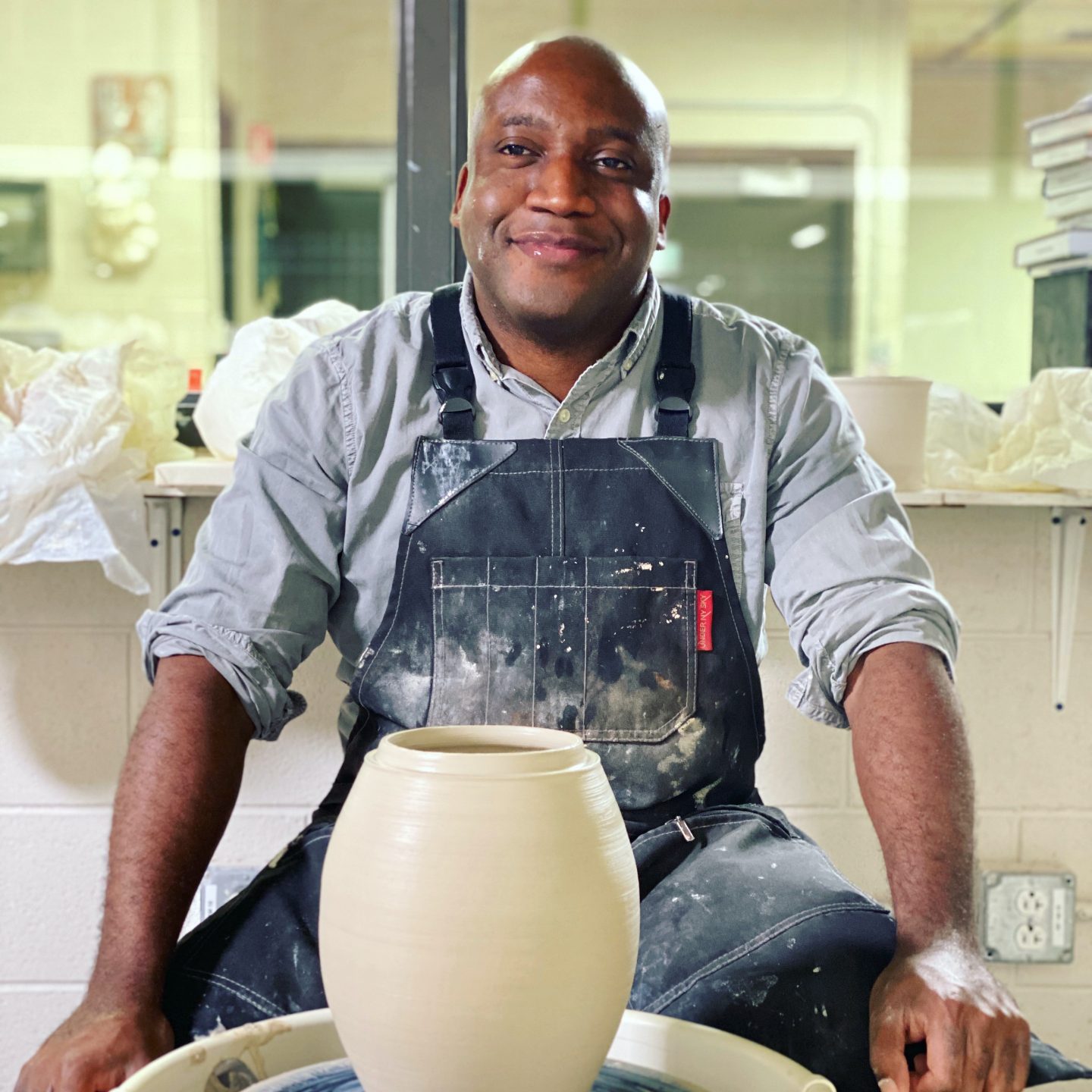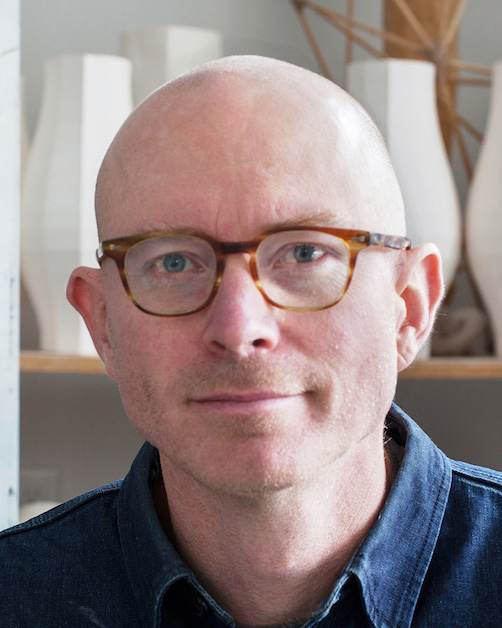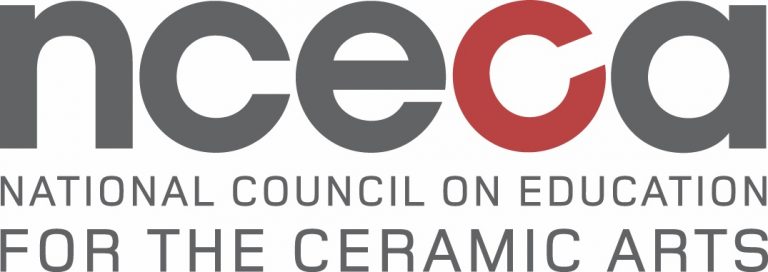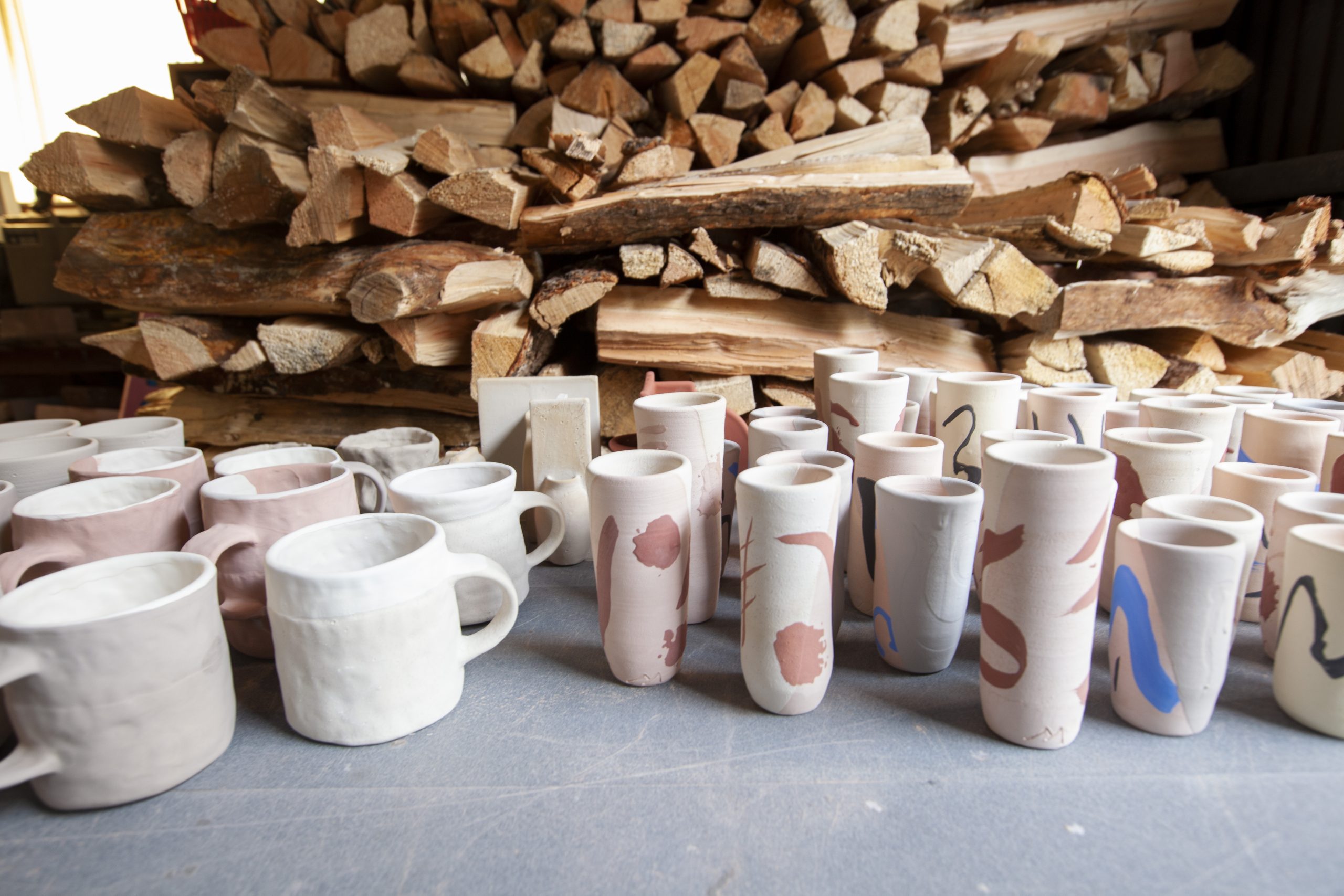Ceramics
Code: C1114-23
-
IV
Level IV
Students have advanced skills and knowledge of the ceramics field. Students are highly motivated, have a minimum of five years experience in the field and have a portfolio of their artwork. Typical students are academics and professional artists.
The Center: The Mold and Matrix: Ceramic Process and Narrative Form
Aug 14 - 25, 2023
9AM-5PM
Concept
This three-year mentorship program is intended for ceramic artists interested in critical feedback as well as being immersed in a creative community who are at a point of transition in their lives, careers, or artistic practices. Emphasis is placed on seeking connections, metaphors, and symmetries between processes for forming clay and developing ways of generating meaning. The objects we make tell stories and propose worlds. A coil or mold are both techniques for forming clay and also propositions about the meaningful interface of material, body, mind, economy, and culture. We focus on ways stories emerge from physical objects and how narratives give structure to physical form. We welcome participants from many different backgrounds and experiences, centering on work in clay but with the potential for different outcomes: work in other materials, writing, sculpture or design.
This is the first year of a 3-year program; please note that the cost of tuition, studio fee, and the registration fee is per year.
If you have an interest in joining this program, applications will be accepted on a rolling basis. Please send your portfolio to our Studio Coordinator of Ceramics Joanne Lee if you’re interested in joining.
Media
Handbuilding, wheel throwing, mold making, gas firing, electric firing, stoneware, porcelain
Supply ListFaculty

Ebitenyefa Baralaye
Ebitenyefa Baralaye is a ceramicist, sculptor, and educator. His work explores objects, text, bodies, and patterns abstracted through a diaspora lens and the aesthetics of craft. Baralaye’s work has been exhibited nationally and internationally. He is currently an assistant professor in Ceramics at the College for Creative Studies in Detroit, MI.

Del Harrow
Del Harrow lives and works in Fort Collins, CO, with his wife, potter Sanam Emami, and their son, William. He is a Colorado State University professor teaching sculpture, digital fabrication, and ceramics. His work is in the permanent collections of the Arizona State University Art Museum, The US State Department Art in Embassies Collection, and the Museum of Fine Arts, Houston.

Del Harrow, Simmel
Ceramics
In 1966, American raku ceramicist Paul Soldner selected the site for what is now Anderson Ranch Arts Center, forming the foundation for a thriving ceramics program. Then and now, Anderson Ranch is a place where students exchange ideas and examine ceramic art and pottery-making techniques. It has always been a place where seminal moments of growth happen in an artist’s creative and critical thinking. Here, both beginning and emerging artists gain strong fundamental support, while established artists achieve new perspectives and advance their techniques.
The Ranch Ceramics team provides support, feedback and technical problem solving, giving each artist the freedom to experiment and grow. Our primary focus is on personal advancement through a process of creative discovery. We also offer community engagement through events like our Locals’ Clubs “Circle of Fire” where artists engage with the Ranch outside of the workshop setting.
The Soldner Ceramics Center makes up more than 10,000 square feet in three buildings. The Lyeth/Lyon kiln building is equipped with gas, electric, soda and wood kilns for both oxidation and reduction firings at all temperature ranges. The Ranch offers three wood kilns, four gas reduction kilns, one soda kiln and eleven high-temperature electric kilns.

Anderson Ranch is happy to extend a 20% tuition discount* in summer one- or two-week adult workshops for NCECA members. Please register online and then email [email protected] with your membership information and we will make the adjustment once you are in the system. You are also welcome to call 970-924-5089 to register. *Please note that the NCECA discount does not apply to The Center / Advanced Mentored Studies program, nor can it be combined with any other discount, scholarship or special offer.
Workshop Details
Supply List
Many of the items you'll need are available in the ArtWorks Store. Please click "View Full Supply List" to see a comprehensive list of items you'll need for this workshop.
Lodging & Meals
Housing is limited and includes shared and private lodging options. Reservations will be managed on a first-come, first-served basis. The earlier you reserve housing, the better your chance of receiving your preferred option. Please note: Workshop costs do not include accommodations.
We have established a Business Safety Plan with added layers of precaution that prioritize the health and safety of our staff, students, faculty and guests while continuing to provide you with the Anderson Ranch experience that you know and enjoy.
The Ranch Café meal plan that is included with Room and Board fees strives to provide healthy, creative meals that will nourish your artistic creativity. The meal plan includes 5 days of continental breakfasts that will include a hot offering, 5 lunches with a selection of offerings, and 5 dinners.

Scholarships, College Credit & Discounts
Making Art Accessible
Applications for scholarship support are encouraged. Specific scholarships are funded by Ranch supporters, either through endowed funds or special gifts.
Many colleges and universities offer college credit for workshops taken at Anderson Ranch. Discounts are available for students and teachers.
You Might Also Be Interested In

-
I
Level I
Students are new to ceramics and have no formal training.
Jul 29 - Aug 2, 2024
9AM - 5PM
Beginning Adult Wheel: Back to Basics
Joanne Seongweon Lee
Tuition $1,200
Code C0911-24
This beginner’s workshop is designed for students who have never touched clay before or want to improve their basic skills in throwing. Students start with centering the clay and work their way to the creation of forms—cylinders, bowls, and vases. This workshop focuses on wheel-throwing, though participants are able to bisque fire their work and experiment with underglaze, slip, and maiolica decoration.

-
II
Level II
Students have a basic understanding of forming techniques, such as throwing and hand building. Students have taken one or two ceramics classes or workshops.
-
III
Level III
Students have significant experience with clay forming techniques, such as throwing, hand building and modeling. Students are comfortable with ceramics equipment, such as wheels, extruders and slab rollers. Students are self-starting with some formal training and have taken a minimum of three classes or workshops.
Jul 29 - Aug 9, 2024
9AM - 5PM
Rerecorded Bodies
Jinsik Yoo
Tuition $1,450
Code C0912-24
This workshop centers on the human form as a powerful expressive motif in ceramic sculpture. Combining craft and emotional effect, Jinsik shares his method of developing 3D sculptural forms from collaged 2D renderings and composite sketches. Participants are encouraged to explore different ways of expressing their ideas through clay in the development of their own personal symbolism and storytelling. Handbuilding, slab-building, surface treatment, and glazing accompany lectures and discussions that investigate how the photographic image can expand the possibilities for making clay sculptures.

-
I
Level I
Students are new to ceramics and have no formal training.
Aug 5 - 16, 2024
9AM - 5PM
Clay, Hand and Machine: Computer-Aided Clay Processes
Audrey An
Tuition $1,450
Code C1014-24
This workshop explores computer-aided clay design and fundamental plaster mold making. Thinking about hand-machine collaboration, the workshop introduces various methods to generate digital models that become clay objects or custom tools that enhance studio practice. Students gain basic proficiency in Rhinoceros 3D and learn how to use handheld scanners to create and modify forms in Blender 3D. Digital designs can become paper stencils for slab building, cast from plastic 3D prints, or directly printed in clay using the 3D PotterBot.












